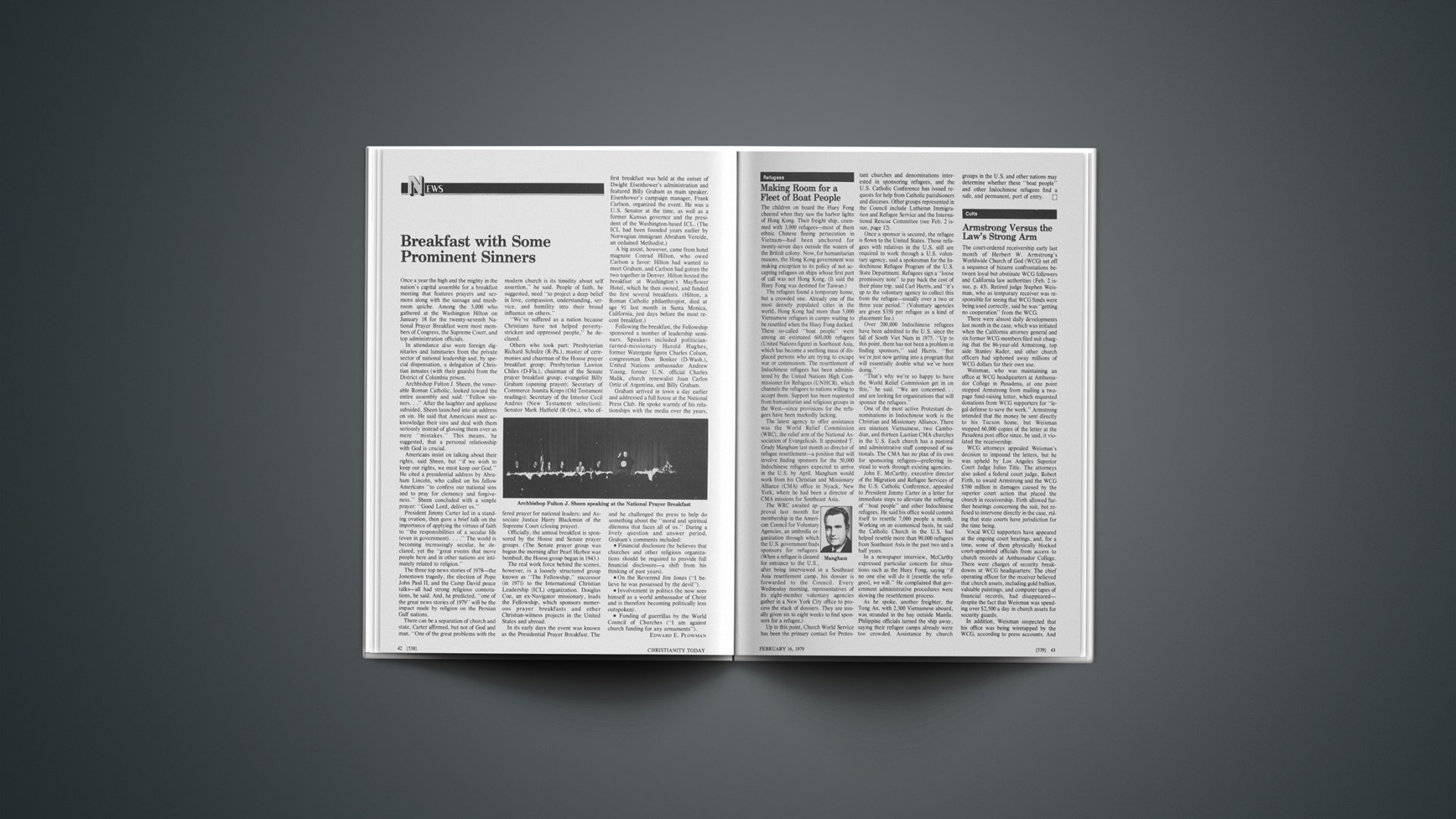The court-ordered receivership early last month of Herbert W. Armstrong’s Worldwide Church of God (WCG) set off a sequence of bizarre confrontations between loyal but obstinate WCG followers and California law authorities (Feb. 2 issue, p. 43). Retired judge Stephen Weisman, who as temporary receiver was responsible for seeing that WCG funds were being used correctly, said he was “getting no cooperation” from the WCG.
There were almost daily developments last month in the case, which was initiated when the California attorney general and six former WCG members filed suit charging that the 86-year-old Armstrong, top aide Stanley Rader, and other church officers had siphoned away millions of WCG dollars for their own use.
Weisman, who was maintaining an office at WCG headquarters at Ambassador College in Pasadena, at one point stopped Armstrong from mailing a two-page fund-raising letter, which requested donations from WCG supporters for “legal defense to save the work.” Armstrong intended that the money be sent directly to his Tucson home, but Weisman stopped 60,000 copies of the letter at the Pasadena post office since, he said, it violated the receivership.
WCG attorneys appealed Weisman’s decision to impound the letters, but he was upheld by Los Angeles Superior Court Judge Julius Title. The attorneys also asked a federal court judge, Robert Firth, to award Armstrong and the WCG $700 million in damages caused by the superior court action that placed the church in receivership. Firth allowed further hearings concerning the suit, but refused to intervene directly in the case, ruling that state courts have jurisdiction for the time being.
Vocal WCG supporters have appeared at the ongoing court hearings, and, for a time, some of them physically blocked court-appointed officials from access to church records at Ambassador College. There were charges of security breakdowns at WCG headquarters: The chief operating officer for the receiver believed that church assets, including gold bullion, valuable paintings, and computer tapes of financial records, had disappeared—despite the fact that Weisman was spending over $2,500 a day in church assets for security guards.
In addition, Weisman suspected that his office was being wiretapped by the WCG, according to press accounts. And WCG aide Rader, whose office is just down the hall from Weisman’s temporary quarters, claimed his office was being bugged by the state.
During the turmoil, the patriarchal Armstrong—who claims he is Christ’s sole ambassador on earth and disavows such Christian doctrines as the Trinity—has remained in seclusion in Tucson. Meanwhile, newly-appointed executive director of the WCG, Roderick Meredith, reportedly told a gathering of 1,000 WCG employees that church headquarters might be moved to Tucson or the Lake of Ozarks region in Arkansas, where the church owns property.
Weisman expressed dismay that he was unable to communicate directly with Armstrong. He told the Los Angeles Times, “I’m not even sure he’s alive.” Rader assured him that Armstrong was in fact alive, and the continuing turmoil last month seemed to indicate that this was so.










